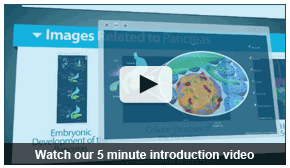-
Embryonic Development
-
Stem Cell Differentiation
-
Regenerative Medicine
Crigler-Najjar Syndrome, Type I
- Cell Therapy Approaches
Crigler-najjar syndrome, is an inherited metabolic disorder in which bilirubin metabolism is impaired, due to a mutation in the UGT1A1 (UDP glucuronosyltransferase 1 family, polypeptide A1) gene. As a result of invalid UGT1A1 enzyme function, bilirubin is not properly eliminated from the body; its accumulation causes brain, muscle, and liver damage.
Cell Therapy Approaches
Cell therapy utilizing cells with normal enzymatic function may provide functional restoration of the impaired enzyme. In cases of liver damage, transplanted hepatocytes integrate within the host liver, providing considerable restorative potential. Hepatocyte transplantation may act as a 'bridge' to whole-organ transplantation or improve liver function, enhancing disease control through traditional therapy.



